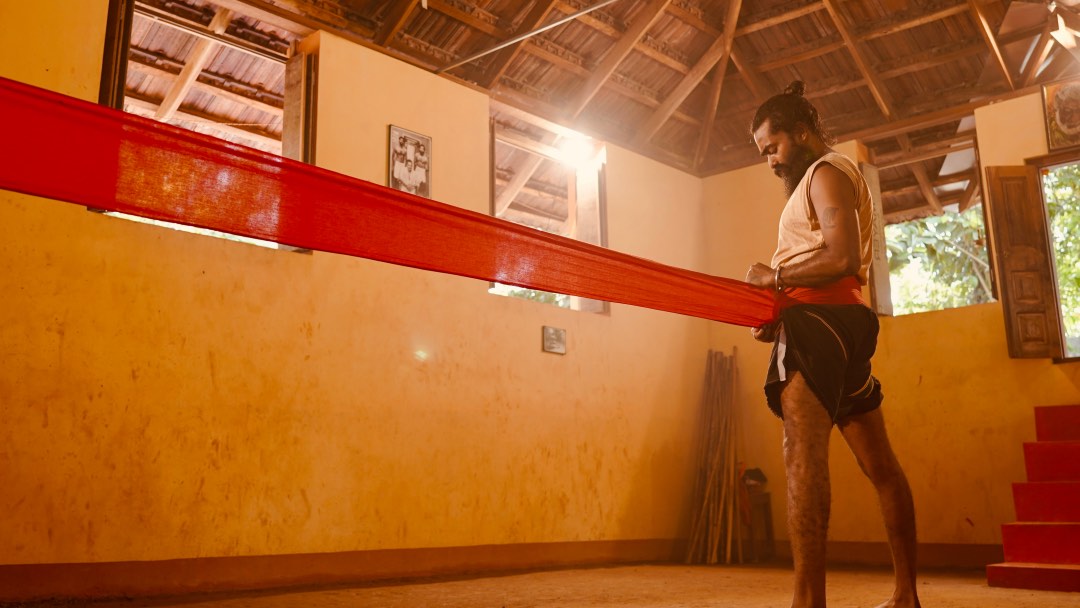Have you ever heard of Kalaripayattu?
Don’t worry if you haven’t — most people outside India haven’t either. But once you do, it sticks with you. Not just because it’s one of the oldest martial arts in the world, but because it’s… well, different. In a good way.
We’re not just talking flying kicks and flashy moves (though, yeah — there’s some of that too). Kalaripayattu, especially as practiced in Kerala, is this unique blend of physical intensity, meditative awareness, and something a bit deeper — like you’re tapping into an ancient rhythm most of us forgot existed.
Let me walk you through it. Not like a Wikipedia page. Just like a friend explaining something cool over chai.
🧠 Mind: Focus, Awareness, and Inner Stillness (Even While Kicking)
So here’s the thing. When you think “martial arts,” your brain probably jumps to sparring, sweat, maybe some shouting. That’s fair.
But in Kalaripayattu training, it’s not about brute force. It’s about awareness — of your body, your breath, your surroundings. Every movement is intentional. Your brain has to stay in sync with your body at all times. You can’t zone out or go on autopilot. One distracted second and boom — you’re out of rhythm.
Some even describe it as a moving meditation. And honestly? That tracks. You’re not sitting cross-legged and chanting, but you’re fully present. Focused. Calm — even when your legs are burning from horse stance.
Sounds weird? It works. Trust me.
💪 Body: Flexibility, Strength, and Flow (Not Just for Fighters)
Okay, so yes, your body’s gonna feel it.
Kalaripayattu is physically demanding — but in a graceful, flowing way. You’re not just doing push-ups or throwing punches. You’re learning stances inspired by animals — think lion, snake, elephant — and stringing them together into something almost like dance… but sharper.
It’s beautiful to watch. And even better to do (once you stop feeling like you’ve been hit by a truck the next day).
Here in Kerala, most training happens in traditional kalaris — sunken training pits with packed earth floors. You’ll train barefoot. No air-conditioned gym. Just you, the earth, and a whole lot of sweat.
Honestly? There’s something primal and grounding about it.
🕉️ Spirit: Tradition, Healing, and Something Deeper
This part’s harder to put into words, but it’s maybe the most important.
There’s a spiritual layer to Kalaripayattu that doesn’t hit you right away. It’s not religious. It’s more about energy, discipline, and connection — to yourself, your teacher (gurukkal), and something bigger than you.
Many Kalaripayattu residential courses in Kerala also include elements of Ayurveda, especially marma therapy (working on pressure points to restore balance). After intense practice, you might even get an herbal oil massage to help your body recover. Now that’s ancient self-care done right.
People who stick with the training — whether for a few weeks or a few months — often say it changes them. Not in some dramatic movie way. Just… quietly. You feel stronger, but also more calm. More centered.
Like your body and mind are finally playing on the same team.
🌍 Why Kerala Is the Place to Learn Kalaripayattu
If you’re thinking, “Okay, this sounds cool, but can I really do this as a foreigner?” — totally.
In fact, more and more international students are coming to Kerala every year to train. Some stay for a few weeks. Some for months. Some end up never leaving.
And the cool thing? You don’t need to be super fit or experienced. A lot of Kalaripayattu training centers in Kerala offer beginner-level programs that ease you into the flow.
You’ll wake up to birdsong, train in the morning, eat simple South Indian meals, and spend your afternoons stretching, practicing, or maybe exploring local temples or backwaters. Sounds like a martial arts bootcamp-meets-retreat, right?
It kinda is.
Final Thoughts (But Not In Conclusion, Because That’s Boring)
Here’s what I’ll say:
If you’re looking for something that challenges your body, quiets your mind, and kind of feeds your soul — Kalaripayattu might be your thing.
It’s not mainstream. It’s not easy. But it’s real. And in a world full of noise, filters, and hustle… that’s rare.
So yeah — if you ever find yourself in Kerala, and you’re even *a little bit* curious, try a class. Or better yet, dive into a Kalaripayattu residential course.
Just be ready. You’ll leave sore. You’ll leave sweaty.
But you’ll also leave… a little more you.

